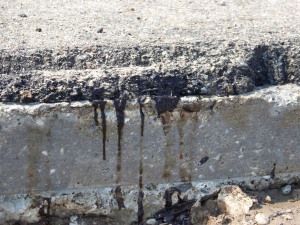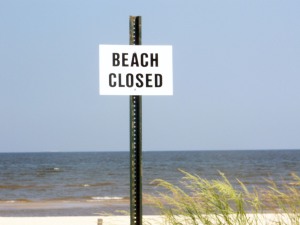 For anyone who doesn’t know this, the state of Mississippi was the 20th state admitted to the Union. The state was named after the Mississippi river which flows along it’s western boundary and has Indian roots in the name stemming from “great river”. Mississippi’s catfish farms supply the majority of catfish in the USA’s seafood industry, while the state also offers a large supply of all seafood in the industry. Mississippi is bordered on the North by the state of Tennessee, on the East by Alabama, on the South by Louisiana and a coastline along the Gulf of Mexico and on the West (across the Mississippi River) by Louisiana and Arkansas. There are 5 major rivers in Mississippi and 4 major lakes. The coastline includes large bays at the cities Bays St. Louis and Pascagoula. It is separated from the Gulf of Mexico by the shallow
For anyone who doesn’t know this, the state of Mississippi was the 20th state admitted to the Union. The state was named after the Mississippi river which flows along it’s western boundary and has Indian roots in the name stemming from “great river”. Mississippi’s catfish farms supply the majority of catfish in the USA’s seafood industry, while the state also offers a large supply of all seafood in the industry. Mississippi is bordered on the North by the state of Tennessee, on the East by Alabama, on the South by Louisiana and a coastline along the Gulf of Mexico and on the West (across the Mississippi River) by Louisiana and Arkansas. There are 5 major rivers in Mississippi and 4 major lakes. The coastline includes large bays at the cities Bays St. Louis and Pascagoula. It is separated from the Gulf of Mexico by the shallow
Mississippi sound and partially sheltered by Petits Bois Island, Horn Island, East & West Ship Islands, Deer Island, Round Island and Cat Island. I’m telling you all of this because I think many people don’t know Mississippi and it’s time you should. Mississippi is the forgotten daughter of this nation in my opinion and Mississippi is a beautiful gem somehow kept secret from our brothers and sisters that need to know. There’s a reason why I’m telling you all of this, so please don’t get bored and stop reading. It’s important to me, and it should be important to you too … even if you live in a favored state of this nation, Mississippi is still your sister.
While the media does not favor this great state, Mississippi is not what they may lead you to believe. The media wants to convince you that we haven’t moved forward since the civil war. That our mindset remains prejudiced,
backward, and ignorant. They don’t want you to know that great musicians, authors and artists came from this humble state. They don’t want you to know about the culture and beauty that is overflowing here. The coast of Mississippi hosts beautiful beaches, classic homes, talented musicians and artists and some of the best fishing any enthusiast could ever ask for. The coast of Mississippi was the place where Hurricane Katrina actually made landfall 5 years ago this summer. But, the media overshadowed that fact with reporting of our neighbor and more popular city, New Orleans. The difference, however, is that New Orleans flooded due to a failure on their local government’s part by ignoring repairs to their levee system that was decades overdue while Mississippi’s coastline faced the brunt of this (the nation’s worst
natural disaster in history). Mississippi was raped and pillaged and in areas like Bay St. Louis, Waveland, and Lakeshore the damage completely wiped out homes and businesses up to 8 miles inland and widespread destruction so deep inland that even the northernmost cities of the state faced destruction. But, while the people of Mississippi were ignored by the government, media, and celebrities looking to lend a hand we remained strong and took matters into our own hands. We are a resilient people who are no strangers to being the forgotten daughter, so we worked hard to do things on our own. And we were blessed by many volunteer groups who did come to aid our efforts in rebuilding the secret gem that is the Mississippi Gulf Coast. But once again, despite the fact that this information is important … this is not what I am here to blog about today. However, I am here to blog about the fact that we are yet again treated as the red haired step child of this nation and now I’m going to tell you why.
I am a resident of the resilient and beautiful Mississippi Gulf Coast. I was born and raised here. This is my home. I love this place. Before Hurricane Katrina, the cities of this coast had it all … quaint little shops and pubs lining the beach, fine dining restaurants and entertainment as well as prosperous industries in seafood and tourism. We have been struggling to rebuild what we lost and we have held fast to our hopes and dreams of recovery. Today, in the wake of a disaster that heavily overshadows Katrina, many of us are losing our strength, our hope and our dreams and waking up to just how forgotten we truly are here. Once again, I don’t want to write this as if any reader is living under a rock and doesn’t know the disaster I speak of, but I’m speaking of the BP Deepwater Horizon rig explosion that occurred April 20, 2010 and continues to spew millions of gallons of oil into the Gulf of Mexico daily. If, by some crazy chance, you don’t know what I’m talking about you can read about it here: http://en.wikipedia.org/wiki/Deepwater_Horizon_oil_spill .
During the last 3 months we have learned all about the damage to Louisiana’s marshes and seafood industry and Florida’s beaches…etc… We have seen footage of what is and isn’t being done to protect these popular states’ coasts ecologically and economically but we have seen and heard very little about the forgotten sister that is Mississippi.
Though this sentiment has been in my heart since Katrina, yesterday two incidents spawned my desire to write this blog. First of all, I traveled my local coastline yesterday to see what the BP clean-up efforts were like, what the media was doing and what the people were doing. What I
found was disappointing. I did see some laborers raking the sand and picking up tar patties that washed upon our shorelines and placing them in garbage bags. The workers were far and few between and absent in many areas. I waited until they ended their work day before I went out to do my own inspection and what I found was very disturbing. Oiled litter, tar balls and oiled water was still as far as the eye could see. Exhausted boom remained desperately needing replacement as oil seeped past it. It was heartbreaking and painful to see. I wondered why, but then quickly answered my own question … because the media doesn’t care about Mississippi so the nation doesn’t know that we are being treated this way and the government doesn’t care about the people of this state so our cries will not be heard. Last night, after a trying day of dealing with this reality, I went out to have a drink. Much like after Hurricane Katrina, the bar was full of transients who came here to make a buck following yet
another tragedy. In other words, laborers for BP here to do clean-up work. I was seated between men working on Louisiana clean-up to my left and Mississippi clean-up to my right. They were discussing what their work days consisted of. The comparisons were mind boggling to a point that I couldn’t hold my tongue. In Louisiana’s clean-up efforts there are more safety measures, crews, EPA involvement, BP and
Government employees present and more detailed demands. Louisiana’s clean up focuses on getting the oil out of the water and the marshes as well as getting the tar balls off the coastlines in heavy detail with inspections and safety measures as well as quickly replacing used boom with new boom to continue to protect the delicate marshes and waters of Louisiana. At the end of the day, all clean-up boats in Louisiana waters must be thoroughly cleaned before returning to their ports as to not carry oil and contaminants inland. NONE of this is occurring in Mississippi clean-up efforts. There are less employees working in Mississippi, the EPA & Government are not present, boats are not cleaned and oil and contaminants are carried into our ports daily and Mississippi workers even complained that they feel their efforts are in vain because of the lack of supervision and precaution that are only spreading the oil and contaminants around rather than removing them. The skimming methods on Mississippi waters are far less professional and hardly working compared to that of Louisiana. Booms are not being replaced in Mississippi and our marshes are not being protected. After hearing all I could stand of these comparisons, I blurted out the obvious question “Why?” and received the answer from both sides “Because Louisiana is ecologically and economically more important to the country than Mississippi.” Ouch. That hurt. But, I guess the truth hurts. And so, I have a few photographs I took yesterday to share this truth with you. These were all taken within a 5 mile radius of Waveland and Lakeshore, MS , just a small portion of what is going on here that I wanted to share with you because if I don’t care, who will?
COMMENTS ARE WELCOME. YOU DO NOT HAVE TO BE A MEMBER OF THIS SITE TO LEAVE A COMMENT. THANK YOU FOR YOUR TIME.
SUSAN
7/11/10
































